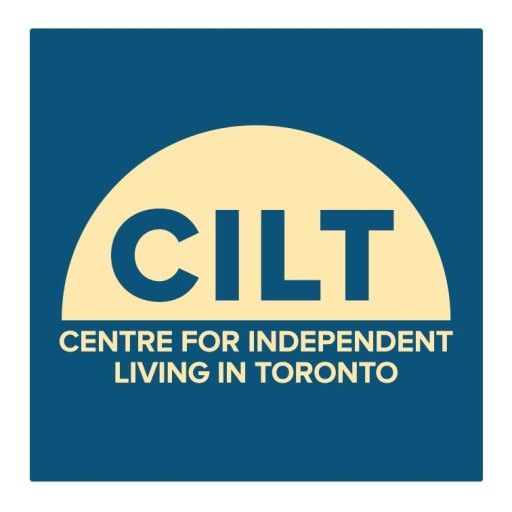Definition of Attendant Services
Attendant Services can be defined as physical assistance, by a trained attendant, with those activities of daily living which one cannot perform because of the limitations or impairments resulting from a permanent physical disability. Consumers take responsibility for the decisions and training involved in their own assistance.
Attendant services include bathing and washing, personal grooming and hygiene, dressing/undressing, toileting, transferring and positioning, meal preparation, assistance with eating, essential communications, light housekeeping, nurturing assistance.
Attendant Services do NOT include: professional services such as nursing care, physiotherapy, occupational therapy or physician services; respite care; supervision; “care” or taking responsibility for the person with a disability.
Historical Background of Attendant Services
Attendant services developed with the growth of the Independent Living Movement in the 1960s and are based on the Independent Living model of service rather than the medical/rehabilitation or charity models of service. The movement began in Berkeley with a group of students with disabilities at the University of California. The Independent Living Movement quickly spread throughout the United States and Canada.
Attendant services evolved out of the desire and the need of persons with disabilities to lead independent lives. They are a unique form of service which enables people with disabilities to live in the community. Before the advent of attendant services, most people with physical disabilities would have remained in chronic care hospitals, lived in institutions, or been cared for by family members long after the age when most non-disabled people would choose to live independently.
Eligibility Criteria
To be eligible for attendant services, applicants must:
- Be insured under the health Insurance Act of Ontario (i.e. have a valid Ontario Health Card)
- Be at least 16 years of age or older
- Have a permanent physical disability
- Require ongoing personal support services i.e. physical assistance with activities of daily living including bathing, dressing, transferring, toileting
- Be able to direct their own services. This means they understand their support service requirements, understand what activities or procedures are necessary in meeting their service needs; are able to provide instructions to an attendant on how to carry out these activities or procedures.
- Be able to have any medical/professional needs met by the existing community health network on a visitation basis
Different Attendant Service Options
Attendant Outreach Services
- Attendant Outreach Services are provided in the individual’s home, place of competitive employment, and/or place where consumers are pursuing adult education programs for the purpose of obtaining a degree/certificate/diploma.
- Services are provided on a pre-scheduled basis between the hours of 6 a.m. and midnight.
- Services cannot be provided on an on-call basis or as emergency services. Consumers are advised to have back-up support available.
Supportive Housing/ Shared Living
- Supportive Housing providers offer several accessible apartments integrated throughout a larger apartment building.
- Supportive Housing providers offer Attendant Services on a pre-scheduled and on-call 24-hour basis.
- Shared Living or group homes offers a communal home setting with attendant services. This option may be the preferred choice for consumers with limited capacity to self-direct or who have multiple service needs.
Mobile Supportive Housing Attendant Service
- Supports are provided in the Consumer’s existing residence.
- Trained staff are available to provide consumers with a flexible mix of supports 24/7/365 to respond to pre-scheduled and on-call service requirements
- Staff are able to respond to urgent needs within 15-25 minutes (on-call service response time will be limited by the size of the service cluster (restricted by the amount of time it will take to travel within the cluster).
- Current cluster boundaries are:
- Eglinton Avenue West to Dufferin Street to Steeles Avenue to Scarlett Road
- Sheppard Avenue to Dufferin Street to Steeles Avenue to Leslie Street
Transitional and Life Skills Programs
- Transitional and Life Skills programs provide the opportunity for learning and practicing the skills and accessing resources necessary to live and participate in the community.
- Service providers offer accessible apartments with attendant services and training or community/home based education program.
- Topics may include directing attendants, accessing community resources, managing health, home safety and communication skills.
- These are time-limited programs (6 to 12 months).
Application of Attendant Services in Toronto and York Region
- If applying to Attendant Service Options in the Toronto and York Region, individuals can apply through the Attendant Service Application Centre (ASAC), which is located at the Centre for Independent Living in Toronto (CILT). ASAC is the centralized point of access for individuals with physical disabilities applying for Attendant Services Projects and Programs in Toronto and York Region. Please visit the Attendant Service Application Centre (ASAC) page for details.
- To request a set of ASAC Application Package, please contact Attendant Service Application Centre (ASAC) at 416 599 2458 or email asac.info@cilt.ca or you can download the ASAC Application Package from our website by clicking ASAC Application page.
Other Attendant Service Options
Direct Funding (DF)
As an alternative to attendant outreach services or Supportive Housing units, Direct Funding enables adults with physical disability to take full responsibility for managing a budget and hiring and supervising their own attendants.
For more information, visit our Direct Funding page.
Attendant Service Projects and Programs Outside Toronto and York Region
Applicants applying for attendant services outside Toronto and York Region need to contact attendant service providers in their areas. The Ontario Attendant Service Directory offers a searchable directory of attendant service options available in Ontario.
For more information, please visit our Ontario Attendant Service Directory page.
Student Assistance
Student Attendant Service Fund (SASF) is a temporary contingency fund for providing attendant services to students who have been assessed by an attendant service provider but are not yet receiving attendant services or when the student’s attendant service provider does not currently have the resources to provide attendant services for their post-secondary studies in Ontario.
Students need to apply for attendant services from the service providers in the area where their colleges or universities are located. If the attendant service providers do not currently have the resources to provide attendant services to the students and require SASF, they will provide written confirmation and assessment result to ASAC. Students will then be placed on the waitlist for SASF. If funding is available, ASAC will contract service providers to provide attendant services to the students. As SASF is only a contingency fund which offers to students on a temporary basis, service providers are expected to continue to place the students on their waiting lists and absorb these students into their base budget on a priority basis if they can in the future so that the SASF can be used to support other students with disabilities
For more information and to request an application form, please contact the Attendant Service Application Centre (ASAC) at 416-599-2458 or email asac.info@cilt.ca.







